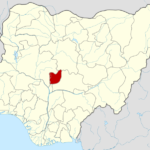The Managing Director, Nigerian Liquefied Natural Gas Limited (NLNG), Mr. Babs Omotowa, says the country is no longer among the top gas flaring nations in the world.
According to him, the NLNG has reduced Nigeria’s gas flaring from over 65 per cent at the inception of the company to less than 20 per cent currently.
Omotowa added that prior to the establishment of the NLGN, Nigeria was the second highest gas flaring nation in the world.
He spoke on Friday at the inauguration of the NLNG Engineering Research Centre at the University of Ilorin, Kwara State.
He said, “The coming of the NLNG has enabled gas flaring (in Nigeria) to be reduced from over 65 per cent to less than 20 per cent.
“One of the reasons the NLGN was set up in the first place was to help reduce gas flaring. When we started, Nigeria was flaring about 65 per cent of its gas.
“We were the second highest gas flaring nation in the world. Through the construction of the six trains we have in the NLGN, we have helped to reduce it to about 20 per cent. Today, we are no longer in the top gas flaring countries in the world.”
Omotowa, who noted that visionary leadership and right use of resources and technology could change the fortunes of a nation, said the NLNG through its University Support Programme, had invested $12m in building and equipping engineering facilities in six universities in the country.
The programme, he said, was meant to uplift engineering teaching and research in the nation’s tertiary institutions.
He said, “We also endow the Nigeria Prize for Science and the Nigeria Prize for Literature worth $100,000 each. The NLNG invested $2m each to build and equip world class engineering facilities in six universities.”
The NLNG boss said the six universities were chosen based on their relative ranking in their geopolitical zones by the National Universities Commission and the World Ranking of Universities.
The universities, according to him are: University of Maiduguri (North-East); Ahmadu Bello University (North-West); University of Ilorin (North-Central); University of Ibadan (South-West); University of Nigeria, Nsukka (South-East) and University of Port Harcourt (South-South).
The Vice-Chancellor, Unilorin, Prof. Abdulganiyu Ambali, said a major problem confronting Nigeria’s developmental efforts was its inability to get engineering right.
“Whether we talk of stable electricity, good water supply, motorable roads, or safe and secure housing as well as other components of our much-needed infrastructure, we realise that largely, the success of the country is that of engineering and the failure is also the failure of engineering,” he said.










Leave a comment